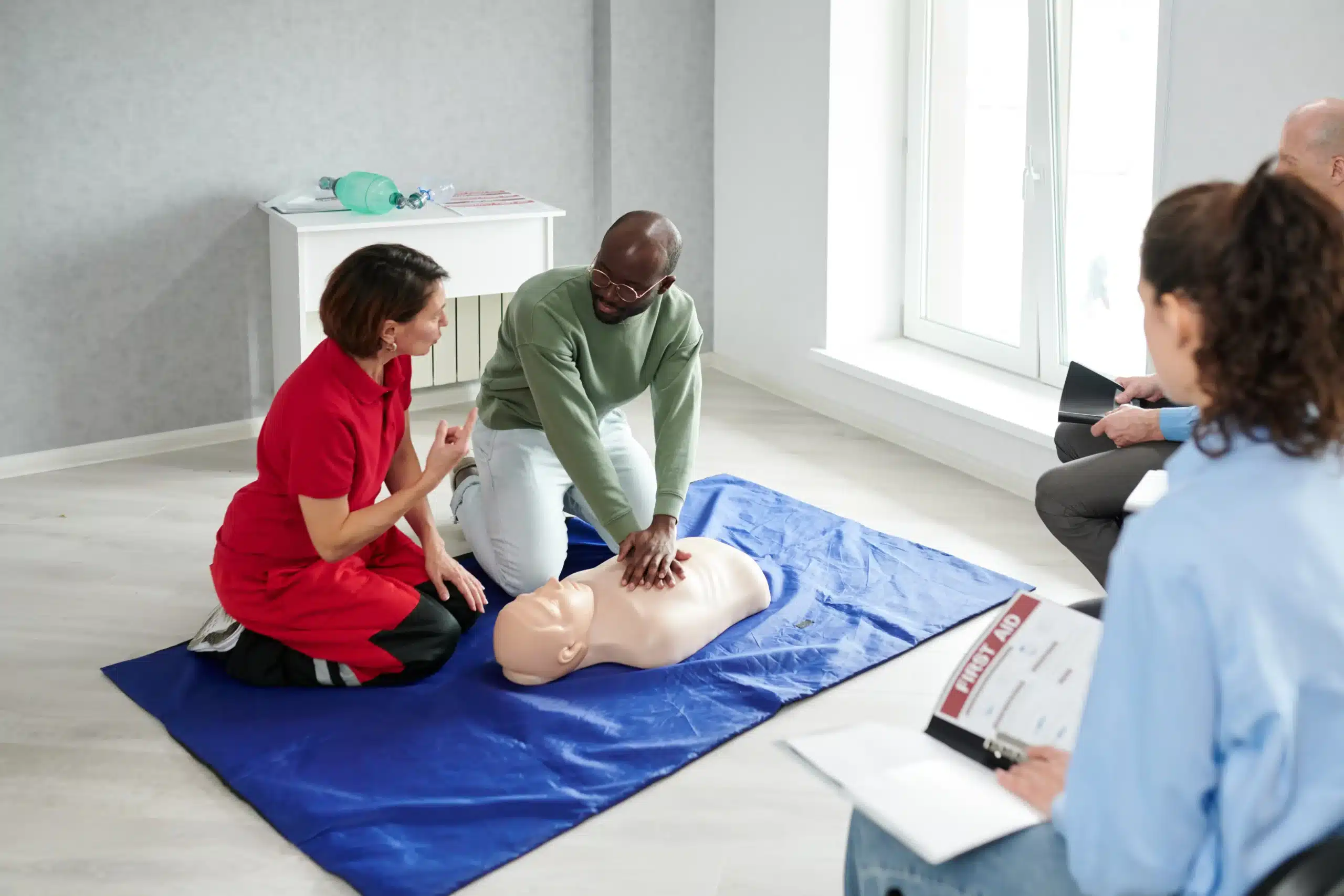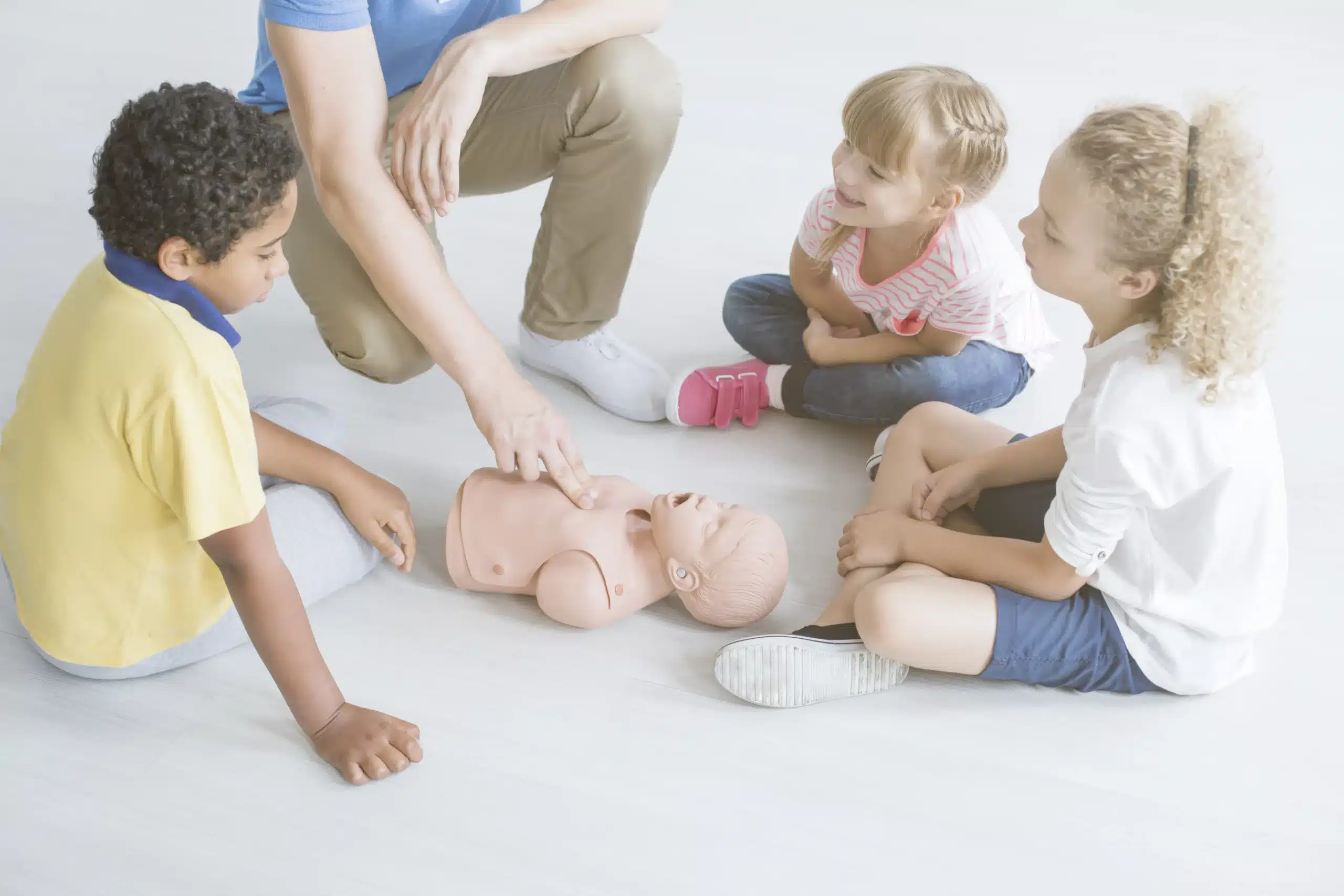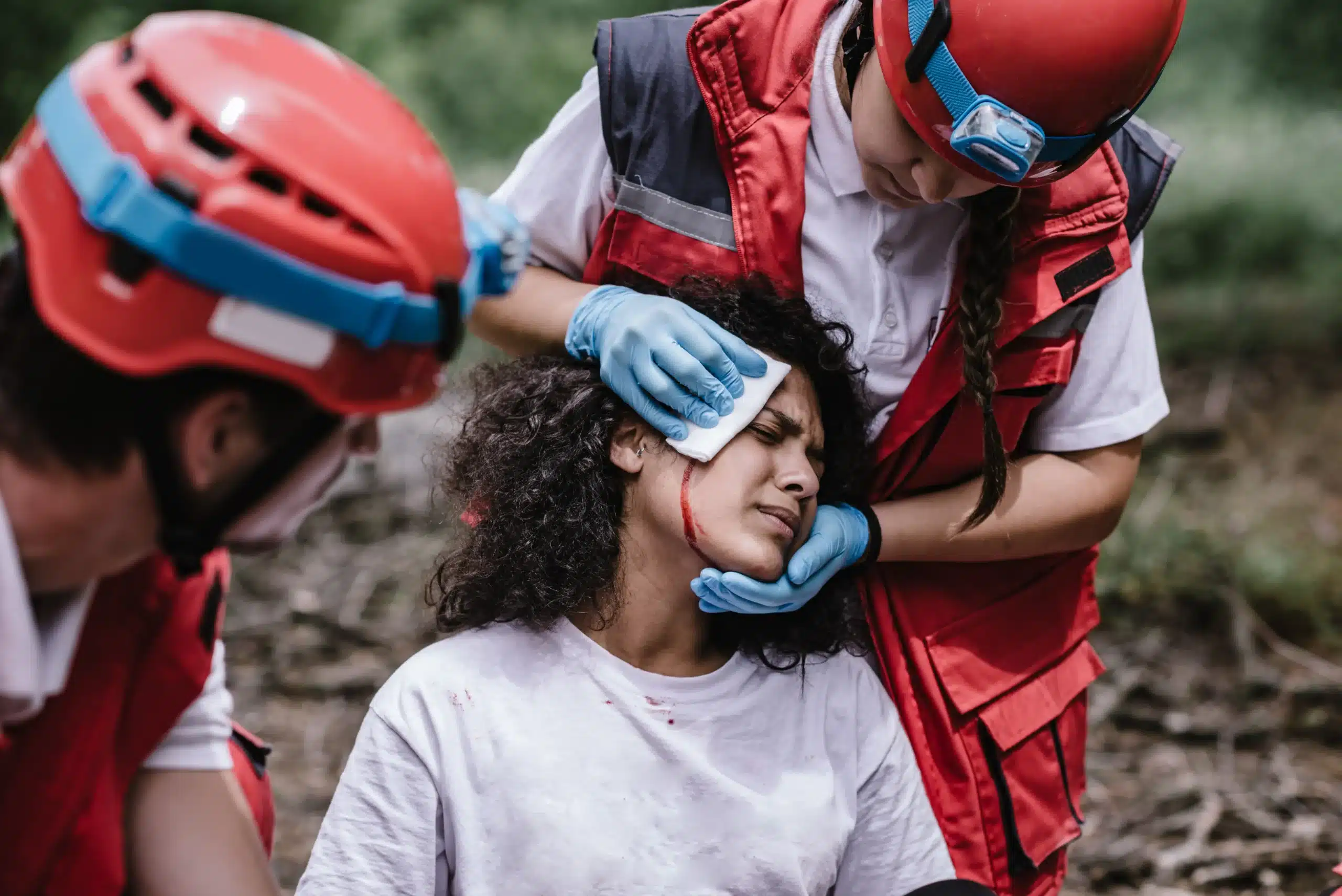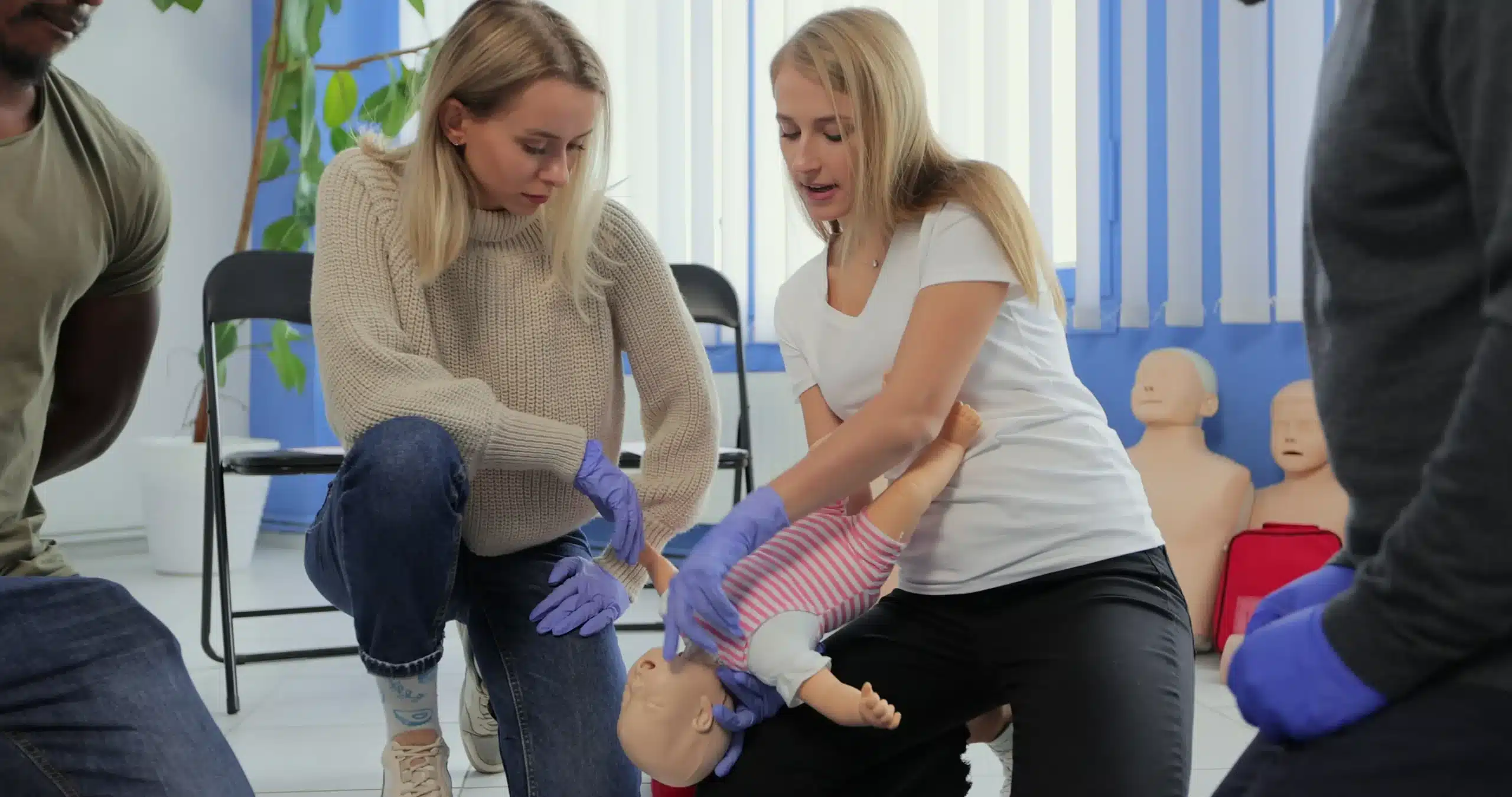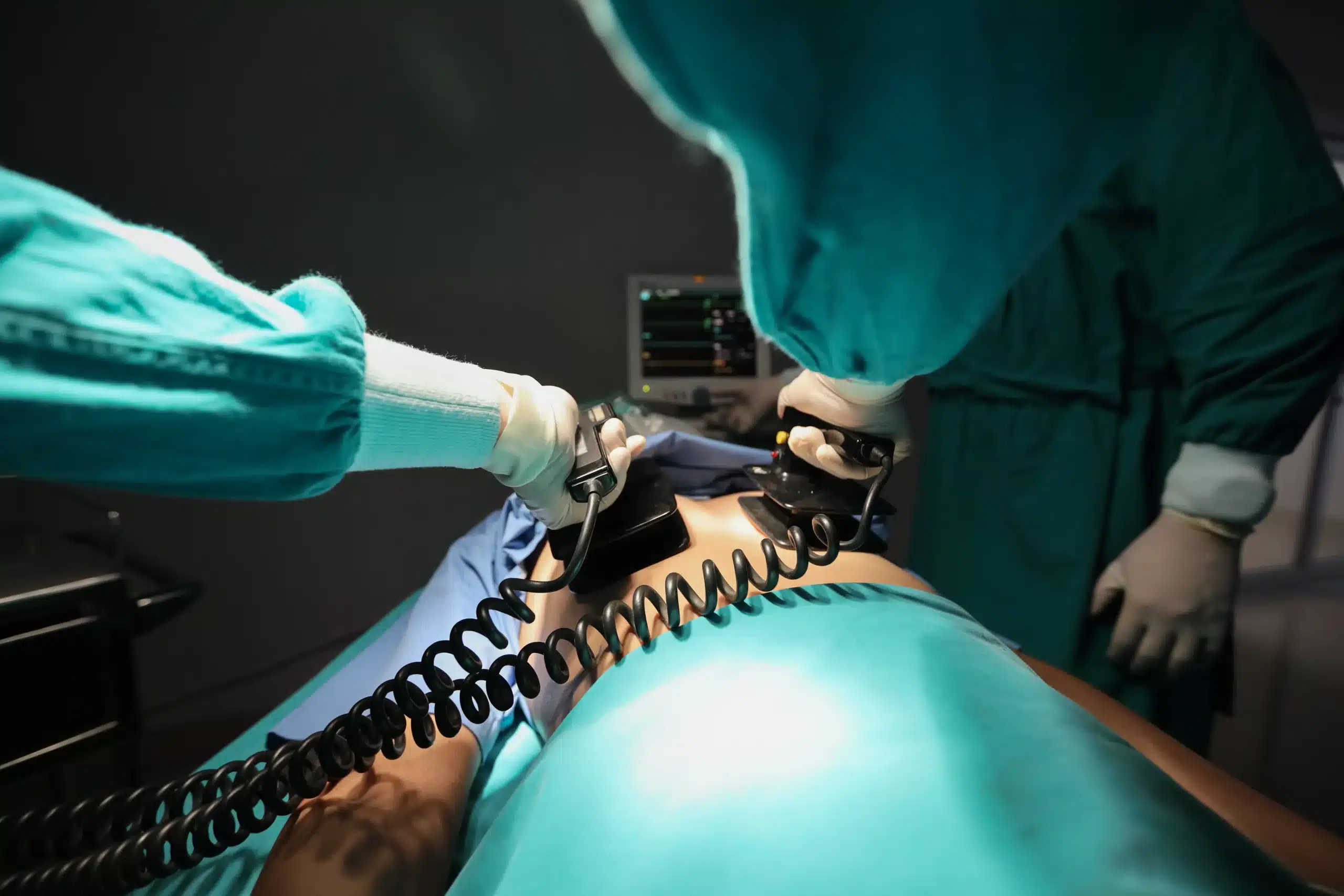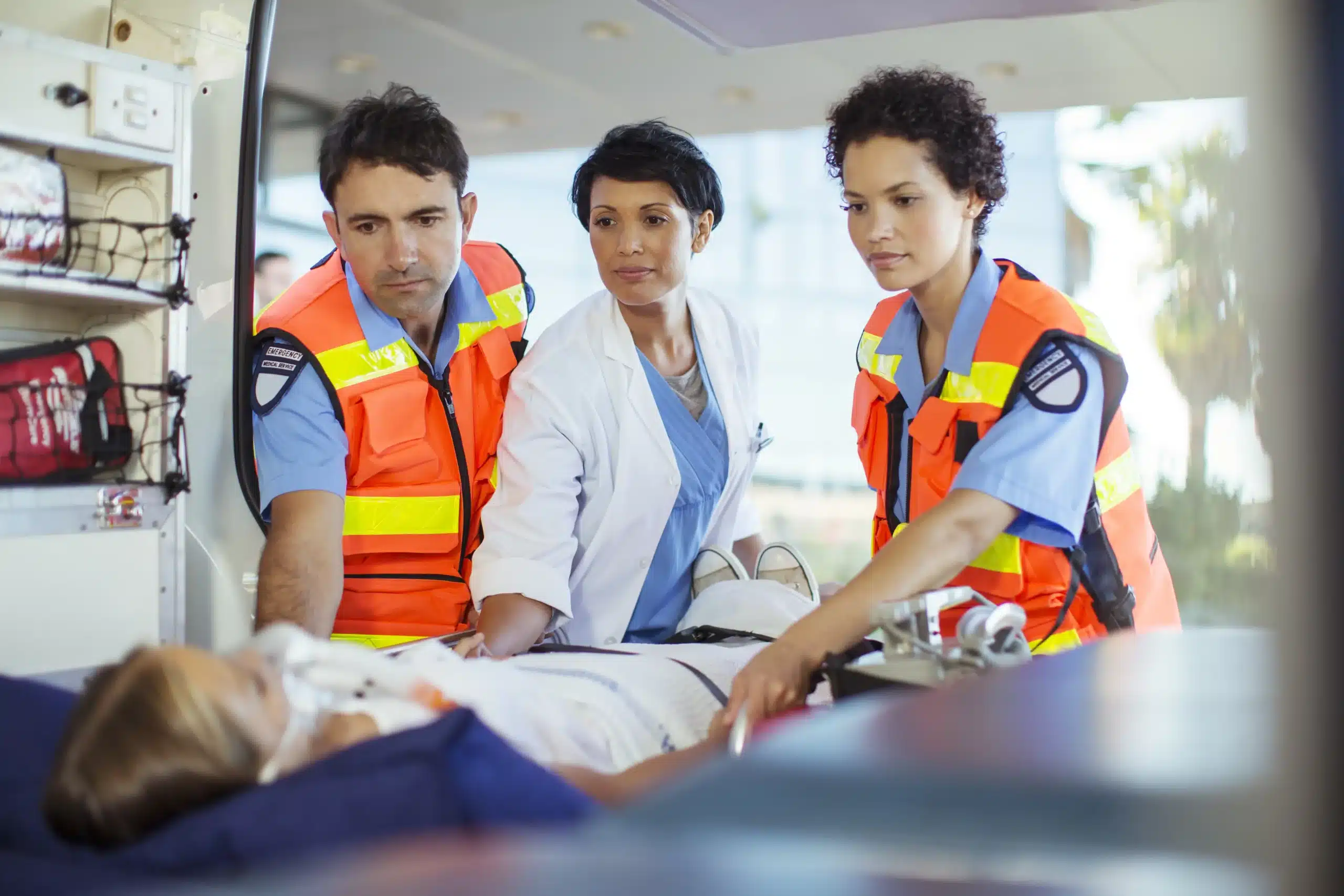In the face of an emergency, seconds can matter. Knowing CPR and having the confidence to act quickly can make all the difference. If you’re in the Livermore area and searching for “American Heart Association courses near me in Livermore,” Safety Training Seminars is here to help. We offer a wide range of AHA-certified courses designed to equip you with the skills to respond effectively in critical situations. From basic CPR and First Aid to advanced certifications like ACLS and PALS, we provide high-quality training that meets the highest standards. This guide will walk you through the various courses available, discuss different learning formats, and help you choose the right course to empower you to make a difference.
Key Takeaways
- Find the right AHA course for your needs: Whether you’re a healthcare provider, caregiver, or simply want to be prepared, courses range from basic CPR and first aid to advanced life support.
- Choose a learning format that suits you: In-person, blended, and online options offer flexibility for different learning styles and schedules.
- Get certified and make a difference: AHA certification equips you with life-saving skills, boosting your career prospects and empowering you to help your community.
What are American Heart Association Courses in Livermore?
The American Heart Association (AHA) offers a range of courses in Livermore, California, designed to equip people with life-saving skills. These courses cover everything from the basics of CPR (Cardiopulmonary Resuscitation) to more advanced life support techniques. Whether you’re a healthcare professional, a childcare provider, or simply someone who wants to be prepared for emergencies, there’s an AHA course that fits your needs. These certifications are essential for responding effectively in critical situations. Safety Training Seminars is a local provider offering these valuable AHA certifications. We’ll break down the different types of AHA courses available in Livermore so you can find the right one for you. We also offer the innovative RQI program for quick and convenient online recertification. And if you’re looking for ways to save, check out our group discounts.
AHA Courses: What’s Available?
Knowing which course fits your needs can feel overwhelming with so many options. This section breaks down popular American Heart Association (AHA) courses offered at Safety Training Seminars in Livermore. We’ll cover everything from basic CPR and first aid to advanced life support certifications.
Basic Life Support (BLS)
The BLS course provides healthcare professionals, first responders, and other designated personnel with the skills to respond to life-threatening emergencies. The curriculum emphasizes high-quality CPR for adults, children, and infants, along with effective airway management and rescue breathing techniques. It also covers the AHA Chain of Survival, emphasizing early recognition and response to emergencies. BLS certification is often a prerequisite for other advanced certifications like ACLS and PALS.
Advanced Cardiac Life Support (ACLS)
ACLS builds upon the foundational skills learned in BLS. Designed for healthcare professionals who either direct or participate in the management of cardiopulmonary arrest or other cardiovascular emergencies, this course delves into advanced resuscitation techniques, including ECG rhythm recognition, pharmacology, and airway management. ACLS training emphasizes effective teamwork and communication during critical situations.
Pediatric Advanced Life Support (PALS)
PALS focuses on the specialized approach required for managing respiratory and cardiovascular emergencies in infants and children. This course equips healthcare providers with the knowledge and skills to assess, treat, and stabilize pediatric patients in critical conditions. PALS training covers topics such as pediatric assessment, airway management, and fluid resuscitation, emphasizing the unique physiological differences between children and adults.
CPR and First Aid Training
CPR and First Aid training provides essential life-saving skills for anyone, not just healthcare professionals. This course teaches participants how to recognize and respond to various emergencies, including cardiac arrest, choking, and common injuries. You’ll learn CPR techniques for adults, children, and infants, as well as basic wound care and how to control bleeding. This combined course is a valuable asset for anyone looking to be prepared in an emergency.
Find AHA Courses in Livermore
Finding the right American Heart Association (AHA) course in Livermore doesn’t have to be a challenge. With several reputable training centers available, you can find a course that fits your schedule and learning style. Here are a few places to start your search:
Safety Training Seminars
Safety Training Seminars, located in Livermore, offers a comprehensive range of AHA courses, including BLS, ACLS, PALS, CPR, and First Aid. They focus on providing high-quality instruction and excellent customer service. Explore their course offerings and learn more about their commitment to community safety. They also offer an innovative RQI program for quick certification and discount group classes.
Bay Area CPR
Bay Area CPR provides AHA-certified courses in Livermore, with a focus on competitive pricing and convenient scheduling. They offer classes daily, making it easier to find a time that works for you. Check their website for the latest schedule and pricing. They also offer EMSA Child Care Health & Safety training for childcare providers.
Other Local Training Centers
Beyond these options, several other training centers in and around Livermore offer AHA-certified courses. CPR Education, for example, provides CPR and first-aid training in Livermore and the surrounding areas. When exploring different providers, consider factors like the instructor’s experience, the course format (in-person, online, or blended), and the overall training quality. Contact the training centers directly with any questions. A good starting point for comparing options is Livermore CPR Classes. They offer a range of AHA courses, including CPR and First Aid, and a low price guarantee.
Course Formats: What to Expect
Choosing the right course format is key to effectively learning CPR and first aid. Let’s break down the options available at Safety Training Seminars, so you can find the best fit for your schedule and learning style.
In-Person Training
In-person training offers a hands-on learning experience, perfect for those who thrive in interactive environments. Our classes are conveniently located at 3195 Independence Drive, Suite 1, Livermore, CA 94551, with sessions available daily. We make it easy to learn essential, life-saving skills with a mix of videos, practice sessions, and group discussions. Class lengths typically range from two to four hours, depending on the specific course. And if you’re looking to train a group, our instructors can also come to your location, simplifying scheduling for friends, family, or colleagues. For more information on in-person training options, visit our website and explore our available CPR and first-aid certification courses.
Online Learning
Need more flexibility? The American Heart Association also offers online CPR and first-aid training through their eLearning platform. This self-paced option allows you to learn using your computer or other devices, fitting training into your busy schedule. The online courses cater to different learning styles and are a great solution for organizations with scheduling challenges or remote employees. This format also works well for individuals who prefer to learn at their own speed and on their own time.
Hybrid Courses
For a blended learning approach, our hybrid courses combine online learning with in-person skills practice. You’ll complete the online portion using RQI (Resuscitation Quality Improvement) software, then attend an in-person session for hands-on skills testing and validation. This format ensures you develop both the knowledge and practical skills necessary to confidently perform CPR and first aid. Learn more about our RQI classes and how this blended approach can benefit you.
Scheduling and Costs
Flexible Class Options
Finding a time that works for your CPR training shouldn’t be a hurdle. We offer classes daily at our Livermore location (3195 Independence Drive, Suite 1). We also understand that getting to a specific location isn’t always easy. That’s why we’re happy to bring the training to you! We can easily schedule group classes at your office, community center, or even your home.
Group Training
Training as a team can be a great way to build camaraderie and ensure everyone in your organization has the same lifesaving skills. Whether you’re a business, a school, a community group, or just a group of friends, we can tailor the training to your specific needs. Contact us to discuss a custom group training session. We’ll handle everything, from scheduling to bringing the necessary equipment.
Pricing and Discounts
We believe that lifesaving skills should be accessible to everyone, which is why we offer competitive pricing on all our courses. Prices vary depending on the specific course and the number of participants. Reach out for a personalized quote. We also offer discounts for group training, making it even more affordable to train your entire team. Check out our low price guarantee.
Instructor Qualifications and Training Quality
When your health is on the line, you want to know the person providing CPR knows what they’re doing. Choosing a CPR class with qualified instructors is crucial. It’s not just about learning the steps; it’s about mastering the techniques and gaining the confidence to act in a real emergency.
Instructor Expertise
Look for instructors who are not only certified but also experienced. Ask about their background, how long they’ve been teaching, and what kind of real-world experience they have. A great instructor can make all the difference in your learning. They can answer your questions thoroughly, provide personalized feedback, and create a comfortable learning environment. When researching courses, see if the training center highlights instructor bios or testimonials. This can offer valuable insights into their expertise and teaching style. Choosing the right BLS course is essential, and instructor qualifications play a key role. Don’t hesitate to inquire about the instructors’ qualifications—it’s your right as a student.
Certification and Renewal
The American Heart Association (AHA) offers various certifications, including BLS, ACLS, Heartsaver, and PALS. These certifications are widely recognized and respected in healthcare. Earning an AHA certification demonstrates that you’ve met a specific standard of knowledge and skill, and that you’ve been trained in the latest AHA guidelines and best practices. Certification is typically valid for two years, so staying current with your training is crucial. This ensures you’re always prepared to provide high-quality CPR and potentially improve a person’s chance of survival after cardiac arrest. Renewal courses refresh your skills and update you on any changes in CPR guidelines.
Choose the Right AHA Course
So, you’re ready to get your AHA certification—great! But with various courses available, how do you pick the one that’s right for you? This section will walk you through the key things to consider.
Assess Your Needs
First, think about why you need this certification. Are you a healthcare professional needing BLS or ACLS certification? Or are you a parent or caregiver looking for a basic CPR and First Aid course? Your profession or personal circumstances will heavily influence which course is most appropriate. For example, healthcare providers often require more advanced training than someone seeking general knowledge. Understanding your specific needs is the first step in narrowing down your options.
Compare Courses and Providers
Once you have a general idea of the type of course you need, it’s time to compare different courses and providers. Here are a few factors to keep in mind:
-
AHA Certification: Ensure the course you choose offers official American Heart Association certification. This is crucial for meeting workplace requirements and ensuring you receive high-quality training. Safety Training Seminars offers a range of AHA-certified courses.
-
Course Format: Do you prefer in-person, online, or blended learning? Think about your learning style and schedule. In-person classes offer hands-on practice, while online courses provide flexibility.
-
Schedule and Location: Look for courses that fit your availability and are conveniently located. If you live in the Livermore, Dublin, or Mountain House areas, check out the options available at Safety Training Seminars in Livermore.
-
Instructor Qualifications: The instructor’s expertise can significantly impact your learning experience. Don’t hesitate to ask about their qualifications, experience, and teaching style. Reading reviews from past students can also give you valuable insights.
-
Cost and Discounts: Compare pricing between different providers and inquire about any available discounts, such as those for group bookings. Safety Training Seminars offers competitive pricing and a low-price guarantee.
By carefully considering these factors, you can confidently choose the AHA course that best meets your needs and sets you up for success.
Prepare for Your AHA Course
Getting ready for your AHA course doesn’t have to be stressful. A little prep work goes a long way toward a smooth and successful learning experience. Here’s what you should know:
Required Materials
While your instructor will provide most of what you need during the course, it’s a good idea to check with Safety Training Seminars about any specific materials they recommend. For example, having your own pocket mask can be helpful for practicing rescue breaths. Instructors at Safety Training Seminars often have extensive medical or emergency response backgrounds, so you’ll be learning from experienced professionals.
Pre-Course Study
One of the best ways to prepare for your AHA course is to complete any pre-course work. Many courses, especially those utilizing the RQI (Resuscitation Quality Improvement) software, have online components. Completing these online modules beforehand will give you a solid foundation and allow you to focus on the hands-on skills practice during the in-person session. Check out Safety Training Seminars’ website for more information on their blended learning options, which combine online learning with in-person training. This approach can be a great way to maximize your understanding and retention of the material. Taking the time to study beforehand significantly increases your chances of successfully completing the course.
Benefits of AHA Certification
Getting your American Heart Association (AHA) certification isn’t just about learning a skill—it’s an investment in yourself and your community. Whether you’re aiming to advance your career or simply want to be prepared to help in a crisis, an AHA certification offers valuable benefits.
Career Advancement
In many healthcare and related fields, an AHA certification is often a requirement or provides a significant advantage in the job market. Employers value these certifications because they represent a high standard of training and skill. For example, BLS certification is essential for many healthcare providers, while ACLS and PALS certifications demonstrate advanced life-saving expertise. Even outside of healthcare, certifications like CPR and First Aid can strengthen your resume, especially for roles in childcare, education, or fitness. The flexibility of different course formats makes it easier to fit training into your schedule. When selecting a course, ask about the instructors’ qualifications and experience to ensure you receive high-quality training.
Community Impact and Preparedness
Knowing CPR can quite literally save a life. The AHA states that immediate CPR can double or triple a person’s chance of survival after cardiac arrest. By becoming AHA certified, you gain valuable skills and become a resource for your community. Whether a medical emergency arises at home, work, or in public, you’ll be equipped to respond effectively. AHA courses give you the tools to make a real difference in emergencies, empowering you to act quickly and potentially save someone. This preparedness creates safer communities for everyone.
Debunking AHA Course Myths
Let’s clear up some common misconceptions about AHA courses and CPR. These myths can prevent people from seeking training and potentially saving lives.
Who Can Perform CPR?
Many people believe only medical professionals can perform CPR. This isn’t true. Anyone can—and should—learn CPR. Bystanders are often the first on the scene of an emergency, and their actions can significantly impact the outcome. Learning CPR empowers you to help in critical situations. You don’t need a medical background to make a difference.
Certification for Helping
Another myth is that you must have certification before helping someone in need. While formal CPR certification from organizations like the American Heart Association (AHA) is definitely valuable and recommended, it isn’t legally required to assist someone. Certification provides the knowledge and confidence to perform CPR correctly and efficiently. Plus, it’s a valuable asset on a resume.
CPR Effectiveness
Some people question how effective CPR really is. The truth is, immediate CPR can double or triple a person’s chance of surviving cardiac arrest, according to the American Heart Association. This fact alone highlights how crucial it is to learn CPR and be prepared to act quickly. Every second counts during a cardiac event, and knowing CPR can truly be the difference between life and death.
Related Articles
- American Heart Association Courses – Livermore CPR Classes
- BLS CPR Courses in Livermore, CA – Livermore CPR Classes
- AHA ACLS Classes in Livermore, CA – Livermore CPR Classes
- ACLS HeartCode in Livermore: Find Training & Costs – Livermore CPR Classes
- Hands-On CPR Training in Livermore: Your Guide – Livermore CPR Classes
Frequently Asked Questions
Which AHA course is right for me? The best course depends on your specific needs. If you’re a healthcare provider, BLS or ACLS are likely necessary. For those outside healthcare, a CPR and First Aid course might be more suitable. Consider your current job, future career goals, and personal circumstances when making your decision. If you’re still unsure, contact Safety Training Seminars directly – they can help you choose the right course.
How long does AHA certification last? AHA certifications are typically valid for two years. It’s essential to renew your certification before it expires to maintain your skills and stay up-to-date with the latest guidelines.
What if I’m nervous about performing CPR in a real emergency? It’s completely normal to feel apprehensive. AHA courses are designed to build confidence through hands-on practice and realistic scenarios. Experienced instructors guide you through the process, answer your questions, and provide feedback to help you feel prepared.
Are there online or blended learning options available? Yes, Safety Training Seminars offers various course formats, including in-person, online, and blended learning options. Blended learning combines online coursework with in-person skills practice, offering flexibility and convenience.
What if I have other questions not covered here? Safety Training Seminars is always happy to answer any questions you may have. You can visit their website, call them directly, or send an email. They can provide personalized guidance and help you find the right course to meet your needs.
